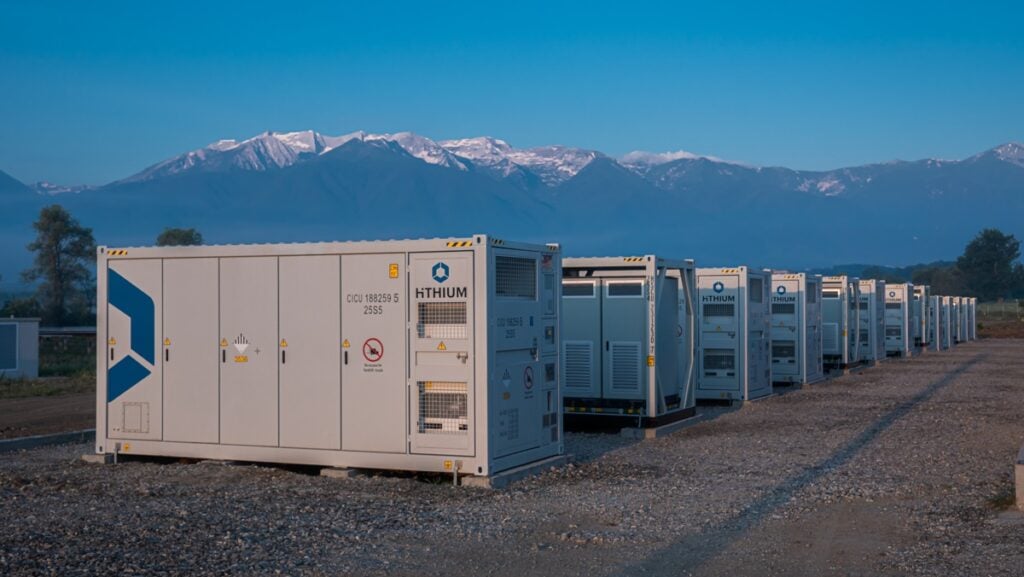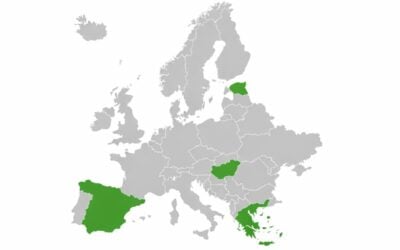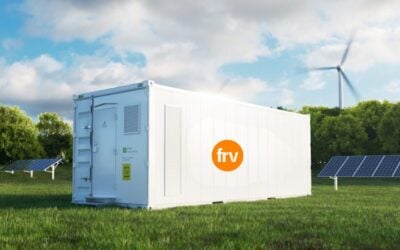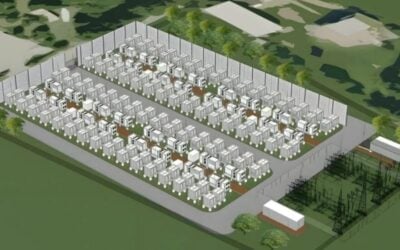
A 25MW/55MWh battery energy storage system (BESS) has been commissioned in Bulgaria, Eastern Europe, by operator Renalfa IPP, using technology provided by Chinese firms Hithium and Kehua.
The project is co-located with a 33MWp PV plant in southwestern Bulgarian city of Razlog and is connected to the transmission system operator (TSO) grid.
The BESS will shift the renewable generation to the evening hours and trade energy on the market, and the trading and optimisation service will be provided by utility KER Toki Power. Its stored energy will be played into the capacity and balancing markets, and participate in pan-European ancillary services markets including aFFR and mFFR frequency response grid services.
Austria-headquartered Renalfa IPP is a joint venture between a subsidiary of engineering procurement and construction (EPC) and operation and maintenance (O&M) firm Solarpro Holding and French infrastructure investor RGreen Invest.
Try Premium for just $1
- Full premium access for the first month at only $1
- Converts to an annual rate after 30 days unless cancelled
- Cancel anytime during the trial period
Premium Benefits
- Expert industry analysis and interviews
- Digital access to PV Tech Power journal
- Exclusive event discounts
Or get the full Premium subscription right away
Or continue reading this article for free
The BESS technology was provided by energy storage-focused lithium-ion OEM and BESS firm Hithium and power solutions firm Kehua Tech, both based in China. Hithium won the contract back in November last year, as reported by Energy-Storage.news at the time.
Nick Antonov, spokesperson for Renalfa IPP, said: “This co-located utility scale battery marks the start of hybridisation of our over 1GW portfolio of renewable assets in operation and in construction. We are about to introduce similar solutions in the other wind and PV assets in the region, including Hungary and Romania.”
“The main goal is to fully mitigate the PV profile risk of the generators. In the wider context of the energy transition, this facility demonstrates how advancements in technology are making renewable generation far more useful, dispatchable and flexible to supply and demand,” Antonov said.
It comes after local news outlets reported that another independent power producer (IPP) Vinali Re submitted plans for a hybrid wind, solar and storage project near Dobrich in northeastern Bulgaria.
In March, the country’s Ministry of Energy launched tenders for around 1,425MW of renewable generation projects along with 350MW of BESS.
The Renalfa IPP project in Razlog has been claimed as the biggest project of its type in Bulgaria. It is also larger than the biggest project to come online so far in neighbouring Romania, a 6MW/24MWh BESS in that country’s Constanta County, co-located with solar PV and wind generation plants. That project, by developer Monsson Group and system integrator Prime Batteries Technology was notable in that battery equipment and system integration was provided by Prime Batteries.
Marcin Wasilewski, CEO of the European Institute of Innovation & Technology (EIT) InnoEnergy in Central and Eastern Europe claimed the Constanta project was proof European ESS and battery companies could “successfully challenge their Asian and global competitors,” while Prime Batteries CEO Vicentiu Ciobanu said the project would be expanded to 215MWh capacity next year.
Monsson’s head of M&A, Sebastian Enache, and energy storage project manager, Mihaela Popescu spoke to Energy-Storage.news Premium about the Romania project for an interview published in May.
Meanwhile, Renalfa IPP’s portfolio and pipeline of wind, solar and BESS projects in development, construction and operation in Bulgaria, Romania,, Hungary, and North Macedonia totals roughly 2GW, with 455MW in operation and over 550MW in construction.
Energy-Storage.news’ publisher Solar Media will host the 2nd Energy Storage Summit Central Eastern Europe on 24-25 September this year in Warsaw, Poland. This event will bring together the region’s leading investors, policymakers, developers, utilities, energy buyers and service providers all in one place, as the region readies itself for storage to take off. Visit the official site for more info.





